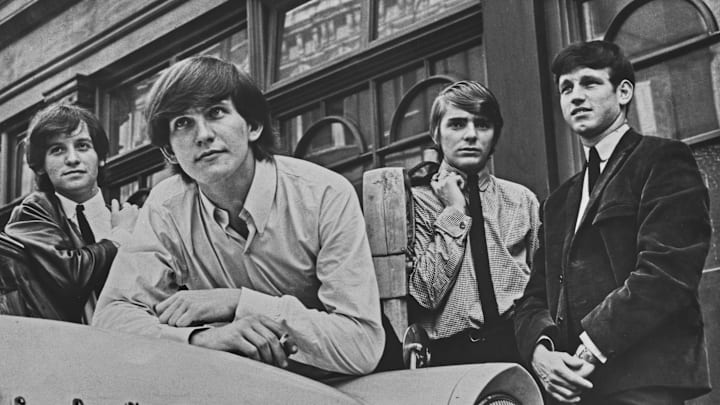In our examination of rock bands whose careers ended too soon, we have worked our way all the back to the 1960s. If it didn’t birth rock & roll, the 1960s were the decade in which it rose to prominence as the dominant musical form in the west – a position it would hold until being supplanted by hip-hop toward the end of the century.
As such, the ‘60s holds a special poignance for rock & roll fans. Even if you did not live through it, you know most of the bands. It may have been the music of your parents or older siblings, but you grew up listening to it. British invasion, California surf, Motown – it formed the foundation of all that came next. In such a fertile decade, the early demise of a creative band always hurts, because we are left wondering what other seeds they might have sown had they remained intact.
The most famous rock band ever – the Beatles – may have been the final casualty of the turbulent decade. At least by the time the Fab Four released their final studio album – Let It Be – in 1970, they had already created a dozen albums and altered the course of music forever. It had been obvious for several years that they needed to split. The Beatles did not break up too early. But here are five bands who did...
These 1960s bands gave up way too soon
WAYNE FONTANA AND THE MINDBENDERS – 1965-1967 (6 albums)
1965 was the fulcrum. Country rock legend Steve Earle does a great podcast in which he suggests that was the year Bob Dylan decided he wanted to be the Beatles and John Lennon decided he wanted to be Bob Dylan. Bringing it All Back Home and Rubber Soul were the results. The training wheels were off and everything was fair game for musical exploration. Record labels began gobbling up any young band with long hair and two guitars. They threw a lot of spaghetti at the wall to see what was ready for public consumption.
Wayne Fontana emerged from Manchester when he was not yet 20 with Eric Stewart, Bob Lang, and Rick Rothwell. His quivering tenor hovered over the vaguely Motown-sounding “Um Um Um Um Um” and scored a modest hit. But it was the following year that he found major success by diving into the emerging Merseybeat rock & roll of “The Game of Love.”
That early triumph inspired Fontana to leave his backing band – The Mindbenders – for a solo career. The Mindbenders then recruited a new lead singer – Eric Stewart – and put out the Beach Boys-inspired song written by Carole Bayer Sager, “A Groovy Kind of Love” to massive sales.
Neither Fontana nor The Mindbenders could sustain success on their own. Fontana never really hit on the right mix, recording a lot of soft-sounding pop that never found an audience. Only the blue-eyed soul of “Come On Home,” with its gospel chorus really works. The Mindbenders actually were more artistically ambitious on their own and put out a couple of good albums over the next few years which sadly never caught on.
They got into some trouble with their single “Schoolgirl” because of its subject (teen pregnancy) – but its weirdly hypnotic Gothic Irish folk vibe pointed out an interesting direction – as did much of their final album. In hindsight, it seems as if the band needed Fontana’s star power while the singer needed his band’s music.
